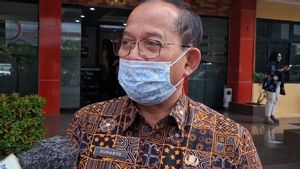JAKARTA - China, which is the world's largest vehicle market, is developing a machine that will be able to track data sent overseas. This is part of the efforts of this bamboo curtain country regulator to implement new rules on data protection.
Cars are now equipped with sensors and cameras that continue to improve in their ability to assist the driver. But the data the equipment generates can also be used by manufacturers to develop new technologies, such as autonomous driving systems, raising privacy and security concerns, especially when the information is sent overseas.
Automakers in China are required to store the data generated by these vehicles locally and need to obtain regulatory approvals when they wish to export critical data overseas.
US electric car maker Tesla Inc is now under the scrutiny of authorities in China over its storage and handling of customer data.
Beijing is increasingly concerned about the backlog of data collected by private companies and whether the information could be misused, especially by foreign countries. Recently Beijing implemented new data security laws and tightened oversight in other related areas.
In May, Reuters reported that staff at several Chinese government offices were ordered not to park their Tesla cars inside government complexes due to security concerns over vehicle cameras. They seem worried that the cameras in Tesla could spy on the activities of the Chinese government.
China Automotive Engineering Research Institute Co Ltd (CAERI) said in a statement that it had developed a system to analyze data transmission lines by using communication detection devices to monitor uploaded data and data collected from vehicles in environmental testing.
The institute also tested several vehicles, including the Tesla Model 3 sedan as well as sports vehicles made by Audi, Daimler Mercedes-Benz and Land Rover. However they did not reveal the results.
Global automakers, including Tesla, Ford Motor and BMW, told Reuters in May that they were setting up local data centers to comply with regulatory requirements in China.
The English, Chinese, Japanese, Arabic, and French versions are automatically generated by the AI. So there may still be inaccuracies in translating, please always see Indonesian as our main language. (system supported by DigitalSiber.id)













